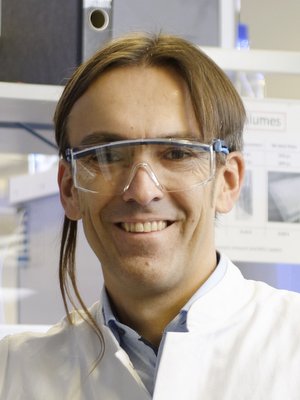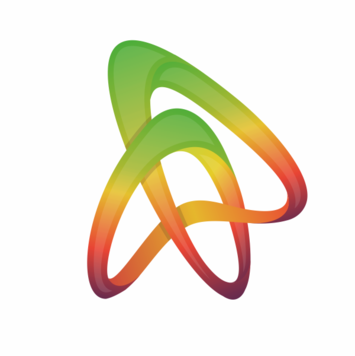Lars Blank

Prof. Dr. Lars Blank
Session: Chemical-Biological Decomposition Processes
Title: Microbial upcycling of plastic:
from scenario evaluation to the wet lab
Lars M. Blank studied Chemical Engineering from 1990 to 1997 at the University of Dortmund (Germany) and Biology from 1992 to 1997 at the Ruhr-University of Bochum (Germany). During his master theses he worked in the field of Metabolic Engineering in the group of Prof. E. T. Papoutsakis at Northwestern University, IL, USA and in yeast cell biology in the group of Prof. W.-H. Kunau at the Ruhr-University of Bochum. In his Ph.D. in the group of Prof. L. K. Nielsen at the University of Queensland, Australia (1998 to 2002), he developed a continuous process for hyaluronic acid production using lactic acid bacteria. During his Ph.D. he worked as a visiting scientist at the Technical University of Denmark (DtU), Lyngby, Denmark (Sept. - Dec. 1999), reprogramming Lactococcus lactis from a purely anaerobe to a partially respiratory organism. As a postdoctoral fellow of the Deutsche Akademie der Naturforscher Leopoldina (Halle, Germany) he established flux analysis as an additional tool for yeast Systems Biology in the group of Prof. U. Sauer at the ETH Zurich, Switzerland. From November 2004 until June 2011 Lars M. Blank lead the group Systems Biotechnology at the Laboratory of Chemical Biotechnology of Prof. Andreas Schmid at the TU Dortmund and was a senior research fellow at the Leibniz-Institut für Analytische Wissenschaften - ISAS - e.V. in Dortmund. In January 2010 he finalized his Habilitation. On the 1st of July 2011 he became professor and head of the Institute of Applied Microbiology at the RWTH Aachen, Germany.
Lars M. Blank focuses in his research on fundamental and applied aspects of microbial metabolism. Of specific interest is the interaction between the metabolic network and the introduced genetic and environmental perturbations. The research on in silico/in vivo metabolic network operation is aimed at a deeper understanding of cell function, with the ultimate goal of rational cell engineering. He contributed to 220+ peer reviewed publications. In his teaching, Lars M. Blank focuses on the integration of biological concepts with the tools from bioinformatics and engineering. He believes that a sound knowledge base in the life sciences is key for creative and thus successful work in the areas of Metabolic Engineering and Synthetic Biology. Lars M. Blank is Associate Editor of Engineering in Life Sciences, Fungal Biology and Biotechnology, Journal of Bioscience and Bioengineering, Metabolic Engineering, Metabolic Engineering Communication, and Microbial Biotechnology.
Microbial upcycling of plastic: from scenario evaluation to the wet lab
Over 365 million tons of plastics were produced worldwide in 2020, with significant growth expected in the near future, resulting in the global challenge of end-of-life management. Landfill is still the major end-of-life treatment, with the danger of environmental pollution, while true recycling is difficult for most plastic fractions. The reasons are manifold, including mixed plastic, additives, and polymer deterioration during the recycling. Also the low price of virgin plastic makes the use of recycled raisin less attractive. Hence, new ideas that give room for new incentives are required for the recycling of plastics. The recent identification of enzymes that degrade plastics previously considered to be non-biodegradable opens up opportunities to steer the plastic recycling industry into the realm of biotechnology.
We here elucidate in detail the upcycling of plastic waste by feeding plastic monomers as carbon source to microbial plastic producers.1 The degradation of plastic and the possibilities to produce valuable products from the resulting monomers will be evaluated.2 Novel value chains include products derived from de novo lipid synthesis like secreted OH-fatty acid derivatives.3 The envisaged contributions to improve sustainability of the plastic industry will be discussed.
- Blank LM, Narancic T, Mampel J, Tiso T, O'Connor K, Biotechnological upcycling of plastic waste and other non-conventional feedstocks in a circular economy. Curr Opin Biotechnol. 2019; 62:212-219
- Tiso T, Winter B, Wei R, Hee J, de Witt J, Wierckx N, Quicker P, Bornscheuer UT, Bardow A, Nogales J, Blank LM, The metabolic potential of plastics as biotechnological carbon sources - Review and targets for the future. Metab Eng. 2021 (in press)
- Tiso T, Narancic T, Wei R, Pollet E, Beagan N, Schröder K, Honak A, Jiang M, Kenny ST, Wierckx N, Perrin R, Avérous L, Zimmermann W, O'Connor K, Blank LM, Towards bio-upcycling of polyethylene terephthalate. Metab Eng. 2021;66:167-178






